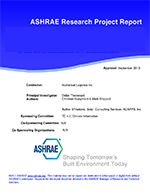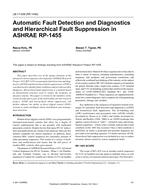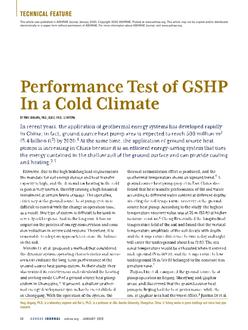Canada Mortgage and Housing Corporation, the federal housing agency, conducted investigations into residential combustion spillage, or the failure of chimneys to properly vent the products of combustion. Surveys undertaken in 1984 established that some houses could be depressurized, through their own exhaust devices and fireplaces, to levels that would reverse chimneys of heating appliances at standby, Especially under cold weather conditions, this backdrafting could be stable, even upon appliance startup, resulting in the spillage of combustion products into the house. A checklist procedure was developed to identify houses at risk.
Surveys of 900 houses in 1986 and 1987 showed that a smallpercentage of Canadian houses experience frequent spillage incidents due to house depressurization, poor equipment design, or lack of maintenance. Up to 10% of the gas-heated houses surveyed recorded at least a single spillage eventin the three months of monitoring. Data from the oil-heated houses were less dependable due to the type of survey technology chosen. Exterior chimneys and numerous exhaust fans were common characteristics in houses prone to spillage. Air quality sampling during spillage incidents on a small number of houses showed that the indoor air quality degradation due to spillage was relatively minor, unless the spillage was coincident with unusually high pollutant emissions from the burners.
Citation: ASHRAE Transactions, vol. 95, pt. 1, Chicago 1989
Product Details
- Published:
- 1989
- Number of Pages:
- 7
- File Size:
- 1 file , 920 KB
- Product Code(s):
- D-23631


